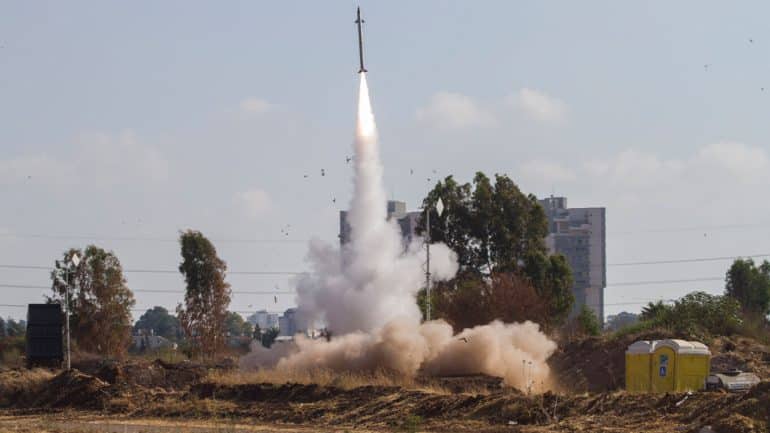A message to Iran that it was Israel's choice not to strike nuclear facilities and a threat that "it could be worse" were sent by Israeli officials via the Jerusalem Post hours after the strike on Iranian soil.
The same sources confirmed that the targets were facilities in Isfahan "almost adjacent to the nuclear facilities of the Revolutionary Guards located in the same area."
"In other words, the Isfahan attack was designed not only to hurt Iran, but also to make it clear how vulnerable Iran's nuclear facilities are to attack," the Jerusalem Post added.
According to the information in the Israeli newspaper, the attack used long-range missiles launched from aircraft to overwhelm the detection capabilities of Iranian radars "and this could be done again at any time."
At the same time, the article adds, by choosing not to hit the nuclear facilities in Isfahan, Natanz or Fordu, "the aggressor (sic as Israel has not officially claimed responsibility) sent a signal to Iran that it did not wants to escalate and start a regional war."
"Whether this strike will ultimately stop Iran from moving forward with its nuclear program and whether it will prevent it from repeating a strike like last weekend without escalating into a wider war will be seen in the coming days and weeks." » concludes the Jerusalem Post article.
An eye for an eye
As the Jerusalem Post reported earlier, the strike was in logic "an eye for an eye as Israel responded after being attacked" with Tehran downplaying what had happened, saying only three drones had been shot down and a senior Iranian official telling Reuters there was no plan. to immediately return the blow
In this context, the same sources said that Israel will not take responsibility and that it remains unclear why the American Pentagon revealed to the American media that Israel was involved. "They could remain silent and avoid the possibility of Iran escalating further," said the same sources.
Air defense can be seen over Isfahan, Iran, shortly after a US official confirmed to ABC News Israeli missiles have hit a site in Iran.
Follow live updates: https://t.co/fBvm6QbVwk pic.twitter.com/jFXzJlDrry
- ABC News (@ABC) April 19, 2024
According to the converging information, what happened happened in the Isfahan region of central Iran, which has an airbase and nuclear facilities, with Tehran claiming through leaks to local news agencies that there was no strike on them.
The fact that Iran's nuclear infrastructure has not been damaged has been confirmed by the International Atomic Energy Agency (IAEA).
A senior Iranian military officer stated that "the bangs heard during the night in Isfahan came from the anti-aircraft defense systems which they engaged against a suspicious object".
IAEA can confirm that there is no damage to it # Iran's nuclear sites. DG @rafaelmgrossi continues to call for extreme restraint from everybody and reiterates that nuclear facilities should never be a target in military conflicts. IAEA is monitoring the situation very closely. pic.twitter.com/4F7pAlNjWM
— IAEA – International Atomic Energy Agency ⚛️ (@iaeaorg) April 19, 2024
CNN reported that Washington had been informed since Tuesday that there was going to be a retaliatory attack by Israel "within 1-2 days, without giving approval" and that Fox News was talking about a "limited Israeli strike".
It is noted that so far Iran does not make any reference to Israel in all the information it transmits about the incident. "The foreign source of the incident has not been confirmed. We have not received any external attack and we are leaning towards an infiltration and not an attack," an Iranian official told Reuters, repeating that drones flown by "invaders from inside Iran." shot down by anti-aircraft defenses in Isfahan
In an attempt to downplay what happened, Iranian media broadcast images from the city of Isfahan in which life continues as normal.
Indicative of Iran's reaction is the post of the representative of the Iranian space agency Hossein Dalirian in which he wrote "they said we shot down 500 suicide drones and missiles and now they respond with three drones which we shot down".
Source: protothema.gr
